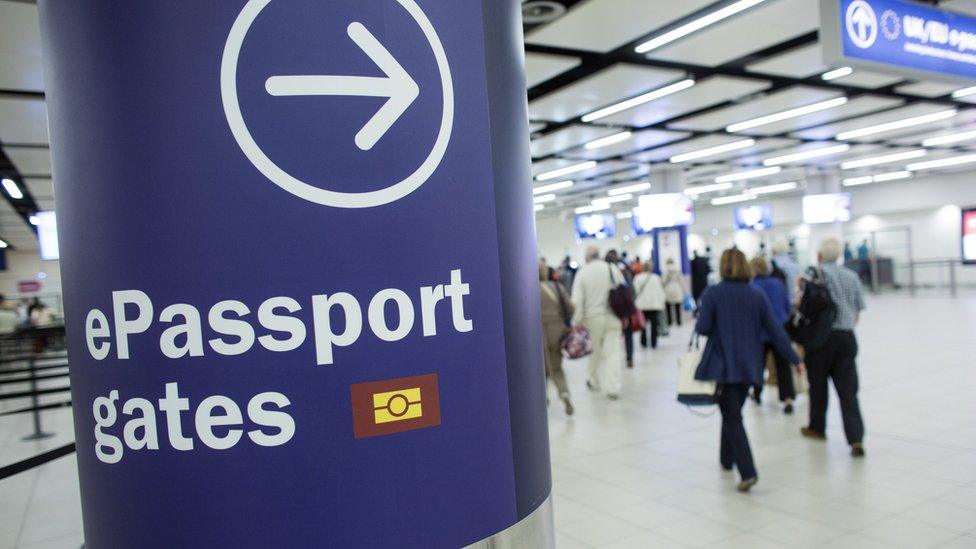Immigration policy: a baffling paradox?
- Published
- comments

What exactly is the government's stance on the free movement of people post Brexit? Is it free or not free?
It seems just as Schroedinger's famous cat which could be alive and dead at the same time - so the UK's immigration policy has become a baffling paradox with the movement of people both free and not free at the same time.
According to the Chancellor Philip Hammond and Home Secretary Amber Rudd, not much will change after the UK leaves the EU in March 2019 as we adopt a transitional arrangement that could last up to 2022.
Goods will continue to flow frictionlessly in both directions, the UK will makes EU budget contributions and crucially people will continue to arrive, in unlimited numbers. So freedom of movement continues - right?
Wrong.
'On manoeuvres'
According to Immigration Minister Brandon Lewis, Secretary of State for International Trade, Liam Fox and the Prime Minister herself as of today, freedom of movement ends at the end of March 2019.
So who do we believe? A Chancellor who, according to David Davis has gone "on manoeuvres" while the PM is away or Theresa May herself whose spokesperson said today that it was "wrong" to suggest "that free movement will continue as it is now".
The answer appears to be both. Freedom of movement as defined and required by the EU will end but people will continue to move freely from the EU to the UK in unlimited numbers, as long as they register when they arrive.
It seems that the division in the cabinet is not so much over what actually happens after March 2019, but what it's called.
By insisting that freedom of movement has technically ended, the most enthusiastic leavers in the cabinet can defend the government against charges of betraying the conclusion of the referendum.
By adopting an almost identical position and calling it a multi-year transition (sounds like you are dragging your heels) or implementation (sounds like you are doing something), the government can demonstrate to business that it is listening to their concerns and putting the interests of the economy first.
'Norwegian lay-by'
Privately, business leaders don't care what it's called. Most are breathing a sigh of relief that the one thing on which there is cabinet consensus is the need to avoid the dreaded "cliff-edge" - a trade and regulatory no-man's land the UK might find itself in if we leave without a new relationship in place.
One FTSE chairman described Philip Hammond's position to me as "pulling off the road into a Norwegian lay-by for a few years". They were referring to the Scandinavian country's membership of the European Economic Area, the European Free Trade Area but not the EU. Pretty much what we have now but without a seat at the rule-making table.
This arrangement suits most business groups - including the CBI - who called for continued access to the single market and effective membership of the customs union until a new deal could be struck at leisure rather than in haste.
But it is treated with great suspicion by those keen to make a clean break. They fear the UK could languish here for many years and refer to it as the Hotel California option - a madhouse from which "you can check out any time you like but you can never leave".
Meanwhile, EU negotiators look on a little bemused as they wait for cabinet ministers to stop arguing with each other and start arguing with them.